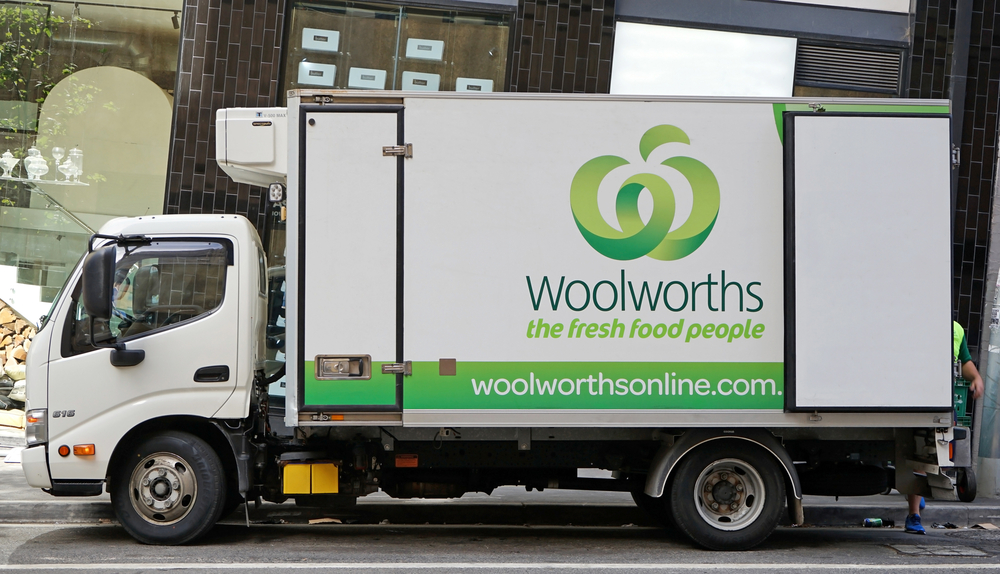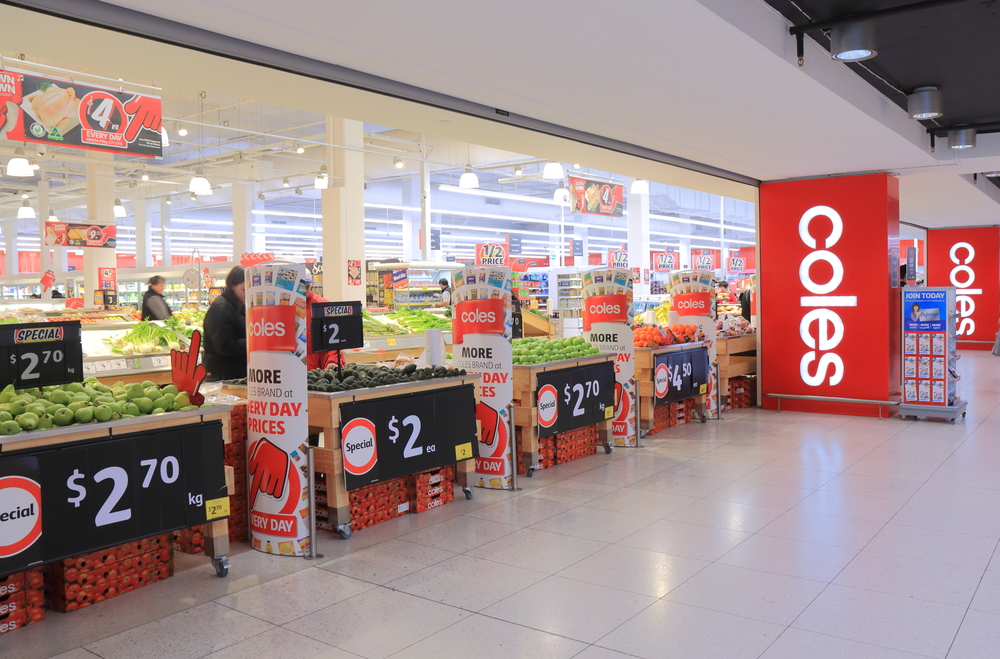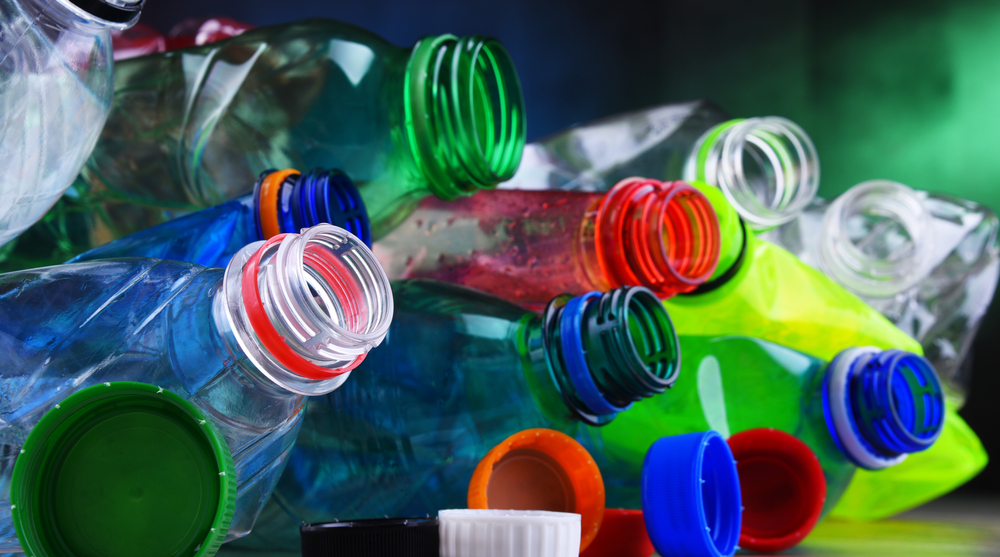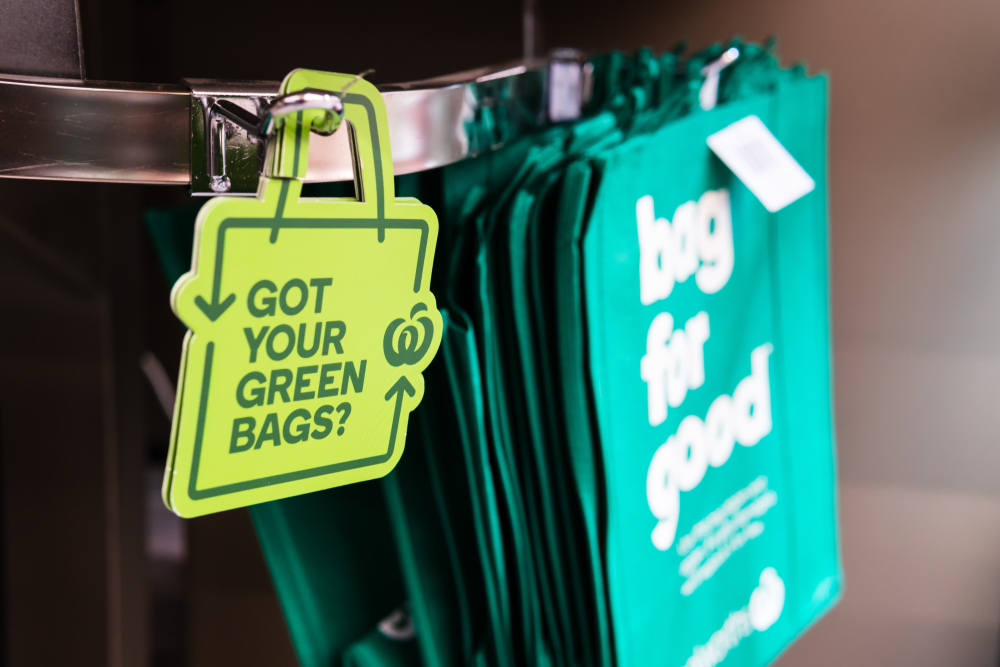By 2050, there will be more microplastic in the oceans of the world than the stars in the universe. Every single year, there are more than 8 million tonnes of plastics are being dumped into the oceans that there are now more plastics there this fish and other sea creatures.
Since the 1950s, plastic definitely proved itself by being incredibly useful to mankind, as years ago by, more and more people are noticing the bad effects of plastic to their home planet, hence there are now so many organizations that urge people not to use it.
In some cities around the world, they are slowly trying to practice getting rid of it especially in grocery stores. The most recent stores to ban them are the Australian supermarkets Coles and Woolworths.
 Catrin Haze / Shutterstock
Catrin Haze / Shutterstock
Coles and Woolworths Say Goodbye To Plastic
Starting the 1st of July, Australia’s leading supermarkets, Coles and Woolsworth have ordered some of their branches to start ditching plastic bags. Some of their branches in the suburban areas will actually start earlier and Woolsworth already started last April 4.
In a statement from Coles, they said that they will begin the plastic bag ban on April 30th in some of their stores. These two big supermarkets have announced last year about their plan on ditching the plastic bags and they will offer their customers reusable bags in case they don’t have it already when they are shopping.
It was the founder of the National Anti-Plastic Bag campaign “Do Something” who influenced Coles into joining the other leading supermarkets in Australia to start using reusable bags instead of plastic bags.According to the chief executive of Woolworths, they give out more than 3.2 billion plastic bags a year so this would be a huge change.
 TK Kurikawa / Shutterstock
TK Kurikawa / Shutterstock
Some other cities and towns in Australia are starting to ban plastic products not just bags with the inclusion of plastic straws, plastic cups, plates, and even cutlery. The local government of Bassendean has actually sent a letter to Coles asking them to stop wrapping their fruits, vegetables, and other products with plastic.
One of the councilors of Bassendean said that they will give vendors six-months to find an alternative for their plastics. However, Coles made a statement saying that most of the times, the fruits and vegetables actually do need to be wrapped so they could keep it fresh and to make sure that bacteria wouldn’t stick to it especially when it’s been delivered straight from the farm to their market to the consumers’ homes.
The Coles spokesman explained how in most cases, the plastic packaging actually prevents the fruits and vegetables from bruising, dehydrating, and crushing. Although Coles has agreed to ban single-use plastic bags, they have not yet if they are going to be using an alternative for their fruits and vegetable packaging or if they are planning on doing something about it.
South Australia was the very first state who phased plastic bags out in 2009 and retailers who are caught using plastic bags will be fined from $5,000 to $20,000. Tasmania followed in 2013, along with Queensland and Western Australia who are starting in a few months.
 monticello / Shutterstock
monticello / Shutterstock
How Plastic Is Damaging The Environment
Unfortunately, mankind is doing everything that would benefit them, even if sometimes the animals and the environment are paying the price. Plastics were introduced in the 1950s and since then, it is taking over the world. Most of them are toxic and they are the reason why most aquatic creatures are becoming endangered.
Some animals like sea turtles think that plastic bags are jellyfish, and some fishes think that they are food. According to the United Nations’ Food and Agricultural Organization, fishes and other sea creatures who eat plastics degrade it to pieces so it is possible that the fishes that humans eat contain plastic.
Technically, it may seem like karma, that whatever mankind throws into the sea, it would definitely come back the worse way possible. Plastic pollution cannot, unfortunately, be stopped, so is global warming, so the least the people could do is to slow it down by no longer using plastic.
 Anystock / Shutterstock
Anystock / Shutterstock
The United Nations have officially declared the war against plastic being dumped into the oceans known as the CleanSeas, but some of the biggest and most powerful countries in the world have unfortunately decked to join such as the United States, China, Russia, and Japan.





